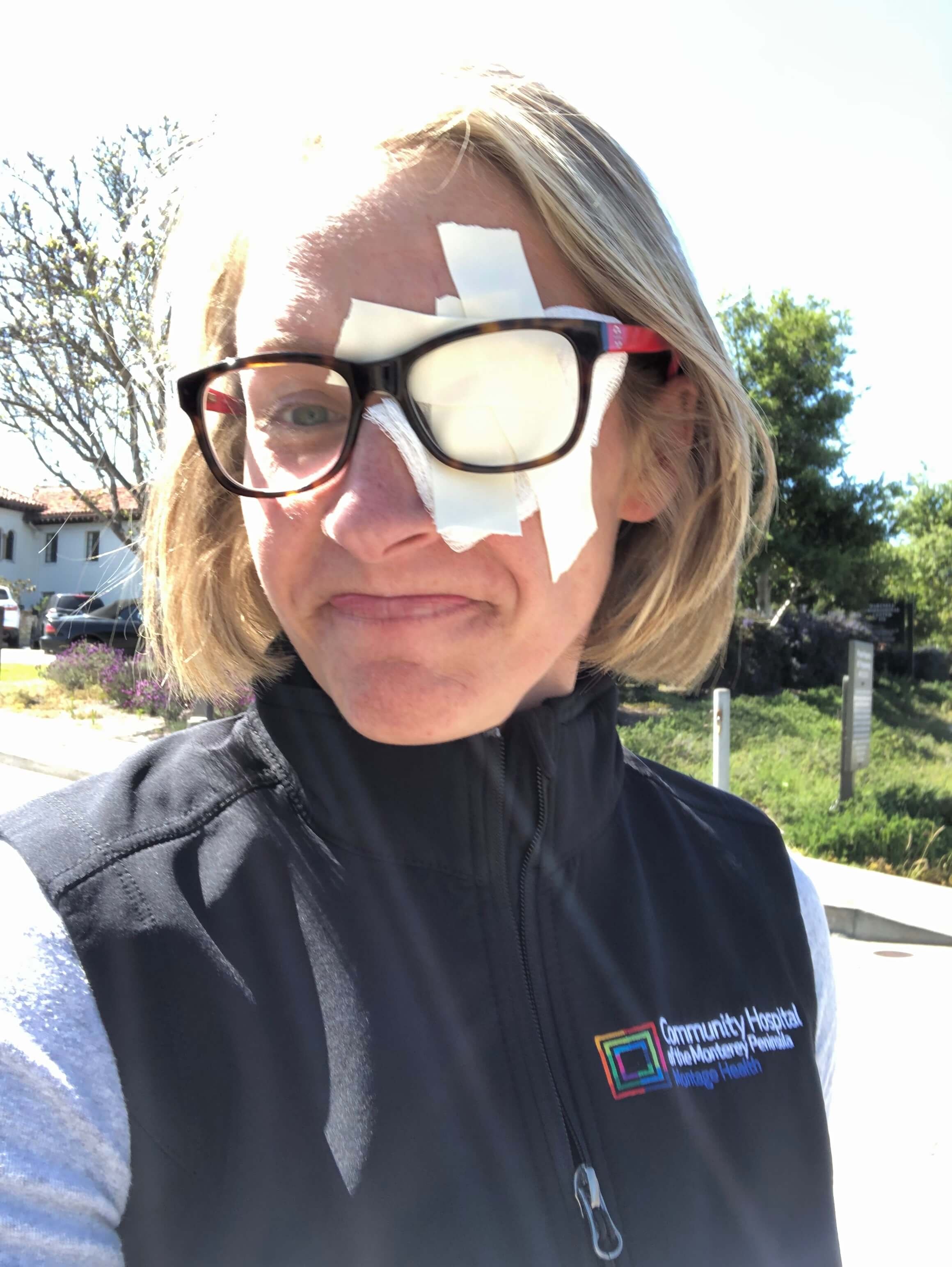6 Years After TBI and IPV: My Journey of Survival
This post does contain information about domestic violence.
What I first remember following my assault six years ago is sitting at my kitchen table with two police officers and the squad car lights flashing red and blue and them asking me if I felt hurt physically from being strangled. He then asked if I needed to go to the emergency room, and I said no because I was not sure what was happening at that point in time. When the police were telling me this information, it was like I was hearing it for the very first time, even though I had, absolutely, just experienced this in a public place by a male nurse for absolutely no reason. In fact, the only reason I may even know is that he chose to turn himself in, and we all know why it was for less or sentence, and he chose to do so in the driveway of the house I was renting in Sonora, California.
The feelings that I felt were shock, rage, and confusion. How was I strangled if I don’t remember? Why would someone do that? And most importantly, I was scared shitless. The police asked me if the male nurse and I had ever “been together,” and we both, separately, answered yes to that question, and I was told he was being arrested on charges of domestic violence with corporal injury. Like I knew what the hell that meant.
The next day I woke up after 1-2 hours of sleep with a blinding pain in my left eye, I figured it was a headache. I took my dog Walter 4 hours away for a vet appointment and back in the same day. I slept on the couch in the UC Davis Vet clinic waiting area for 2 hours during his testing. I had a breakdown to the vet tech because I was so tired and vaguely explained what happened the night before. When we drove home that night, I noticed it was more difficult to see, but I thought probably because I was tired.
The following day is when I heard from my inept government-appointed advocate, Christine. She wanted pictures of my eye. This same day is when my traumatic iritis and mydriasis symptoms completely set in and an optometrist told me my symptoms were stress. That event led to me waiting six more weeks to go to the Stanford University Medical Center emergency room to be seen by their neuro-ophthalmology team where I was diagnosed with traumatic mydriasis, traumatic iritis, and soon after optic neuritis. The only way I was able to manage the pressure behind my eye and the pain initially was by taping it shut.
The next 11 months of court hearings, neuro-ophthalmology appointments, EMDR appointments, managing two dogs, and holding a forty-hour a week job did not provide a positive distraction from all of the big life changes happening, it compounded the constant stress and anxiety. In a short amount of time (less than 10 months) I lost part of my visual processing, who I used to be, and a good amount of my friends from what I call “my previous” life. I am a very different person I was before the assault, but in some ways still very much the same. I have lost parents and friends, yet all of these unpredictable, massive life changes have been the hardest and largest grieving process I have experienced. Grief is non-linear and not everything happens for a reason, and there is something small that gives me peace in knowing that.
My first trauma and EMDR therapist called me “a tough nut to crack”. During all of this misery marathon of overwhelm, feeling terrified, and exhausted - she and I learned that part of the reason I had the capacity to do all of these things was because of coping mechanisms I had learned to successfully make it through my childhood without developing a personality disorder. I had the ability to dissociate from thoughts, especially while working. She did crack me, though. I wouldn’t have grown into the person I am today without her. We don’t need to get into the other situation, there isn’t enough space on this blog to tackle both topics, to be honest.
A few months into the criminal proceedings, the district attorney called me into her office months into the criminal proceedings and said directly to me, “I am willing to settle with a charge of a misdemeanor of disturbing the peace with no jail time because that’s what he wants and you’re case isn’t important enough to take to trial.” And I knew it was because it was a domestic violence case. I had medical records from Stanford and witnesses.
This woman felt exactly how I did on this date.
The last six years have not only been surviving the experience of surviving a TBI and domestic violence, but also knowing my attacker got no punishment with an omission of guilt. Knowing that reality has been the hardest part to sit with and try to accept “what is”. As I conclude my sixth year since the incident, I do know that there is only one person looking out for you and self-advocacy skills are the most essential skill someone needs in challenging situations. I still experience flashbacks and intrusive images, much less frequent and intense than they were six years ago, but more often than I’d like them to be at year six. We are all a work in progress.




